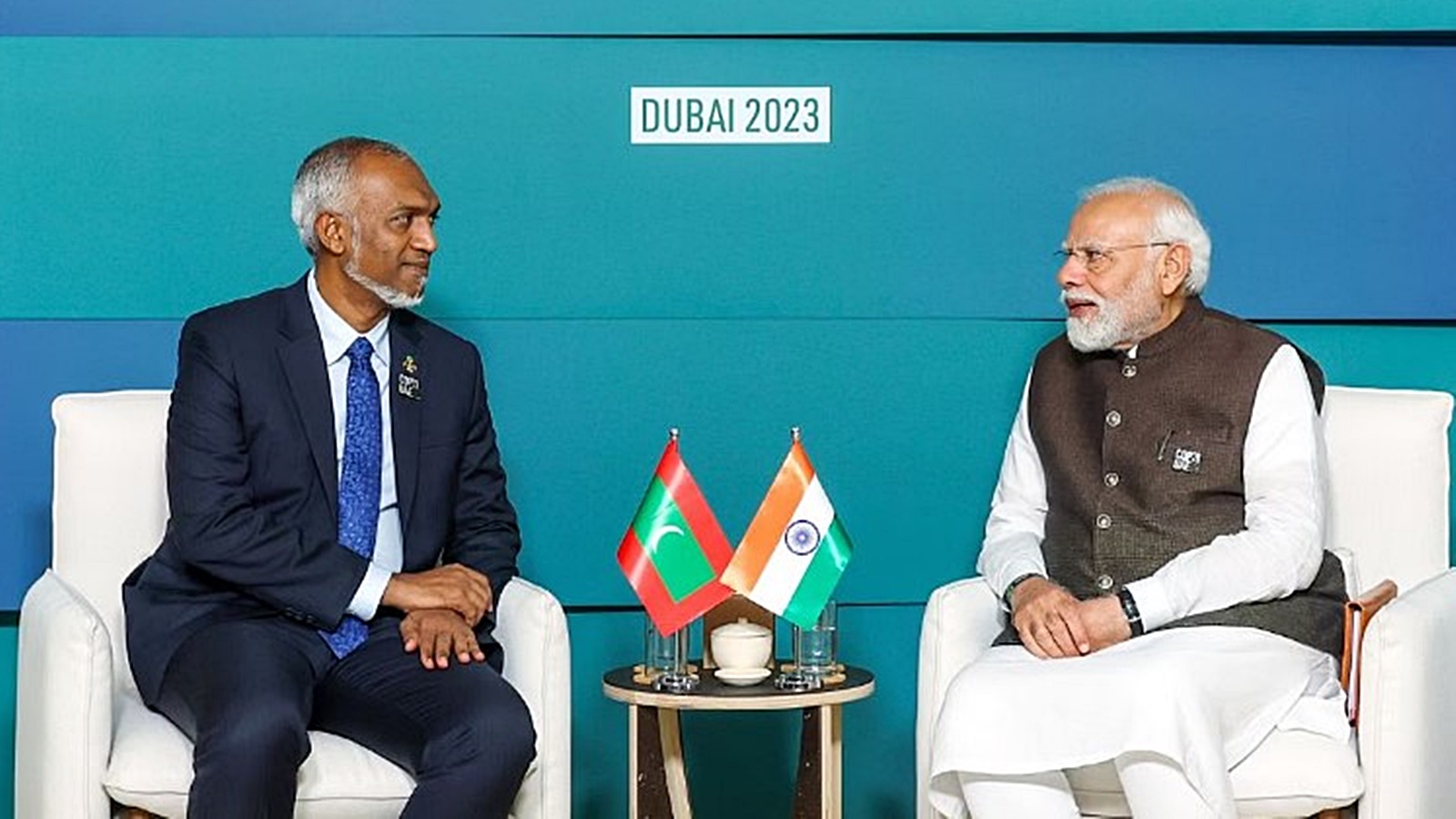India will withdraw its military personnel from the Maldives between March and May, but will continue to operate the two helicopters and a Dornier aircraft in the island nation with the help of Indian civilian replacements and Maldivian defence personnel.
The Maldives Foreign Ministry statement said “both sides agreed that the Government of India will replace the military personnel in one of the three aviation platforms by 10 March 2024, and will complete replacing military personnel in the other two platforms by 10 May 2024”.
The Ministry of External Affairs did not spell out any timeline in its statement, but said both sides “agreed on a set of mutually workable solutions to enable continued operation of Indian aviation platforms” that provide humanitarian and medical evacuation services to the people of Maldives.
Sources said the only “workable solution” for continued operation of Indian platforms turned out to be replacing them with Indian civilian personnel and Maldivian defence personnel who are trained in operating the three platforms.
Around 80 Indian military personnel are stationed in the Maldives to operate these platforms. On January 14, after the first meeting of the core group, the Maldives government had set a March 15 deadline for India to withdraw its military personnel from the country.
Sources said the two sides worked to enable continued operation of these three platforms which are the lifeline of Maldives medical emergency services.
This withdrawal of Indian military personnel is being seen as Maldives President Mohamed Muizzu able to have his way on the ‘India Out’ plank on which he rode to power last year.
The Maldives Foreign Ministry said it was “agreed that the third meeting of the high-level core group will be held in Male on a mutually agreeable date during the last week of February”. This meeting will essentially take stock of the progress in the process of withdrawal of Indian military personnel.
The Indian statement, however, did not give any specific timeline for the next meeting and said, “It was agreed to hold the next meeting of the high-level core group in Male on a mutually convenient date.”
The two sides, however, struck a congruent note on the issue of bilateral cooperation.
The Maldives Foreign Ministry said, “During the meeting held at the Ministry of External Affairs, both sides reviewed the existing bilateral cooperation for improving and enhancing the partnership in the fields of defence and security cooperation, economic, and development partnership.”
The MEA said, “During the meeting, both sides continued their discussions on wide-ranging issues related to bilateral cooperation towards identifying steps to enhance the partnership, including expediting the implementation of ongoing development cooperation projects.”
The core group meeting in New Delhi Friday was primarily exploring ways to resolve the matter, over two weeks after the two sides deliberated over it in their first meeting in Male.
The two sides had decided to set up the core group following a meeting between Prime Minister Narendra Modi and Muizzu on the sidelines of the COP28 summit in Dubai in December.
Soon after taking oath as the President in November, Muizzu, widely seen as a pro-China leader, had formally requested India to withdraw its military personnel from his country, saying the Maldivian people had given him a “strong mandate” to make this request to New Delhi.
Muizzu won the presidential election, ousting Ibrahim Mohamed Solih, after promising to remove Indian military presence from the Maldives.
Barely a month after asking India to withdraw its military personnel, the Muizzu government also announced that it would not renew the previous government’s agreement with India on a hydrographic survey of Maldivian waters.
Last month, after he returned from his five-day state visit to China, Muizzu indirectly hit out at India while addressing the media at the airport. Without naming any country, he said: “We may be small, but that doesn’t give you the licence to bully us.”
Before visiting China, and Dubai for COP28, Muizzu had chosen Turkey as his first foreign destination. This was a departure from the tradition of Maldivian Presidents choosing India as their first overseas stop after entering office.

